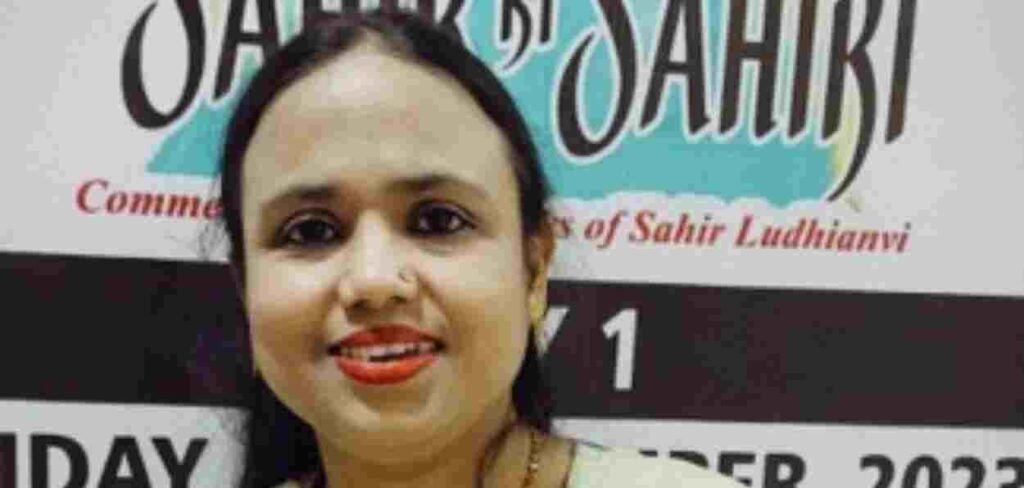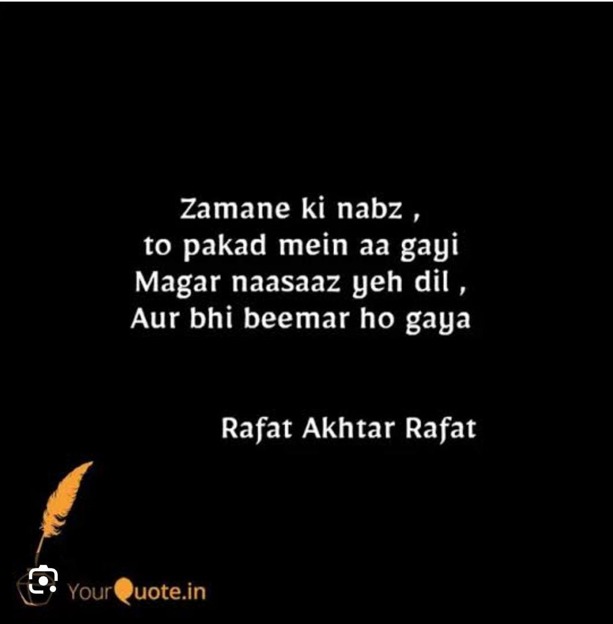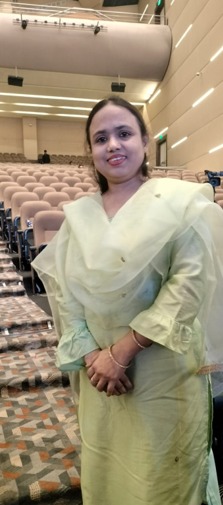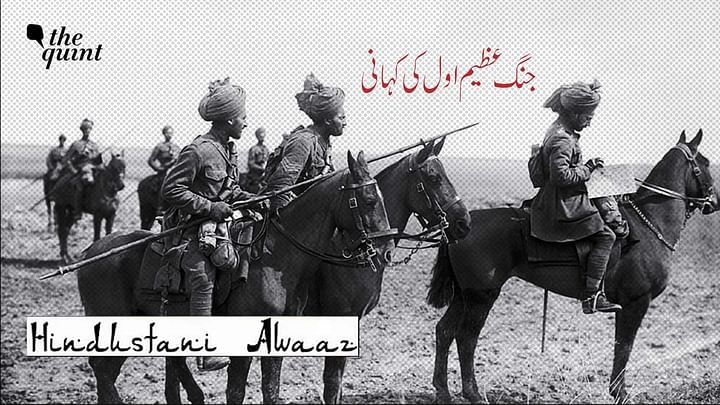Kolkata, WEST BENGAL:

In the intricate maze of poets, meeting a ‘lady Shayari’ is unique, for while there are many, most of them hide behind scenic curtains; they are brimming with talent but too shy to step out. Meeting Rafat Akhtar ‘Rafat’ was, therefore, an enchanting experience.
Born and raised in Kolkata, the City of Joy, as Rafat calls it, she says that even as a child she was quite sensitive. She captured philosophical moments in life and drew in the rich vibes of nature to weave out her Shayaris in a time to come, much later.
She told Awaz-the Voice, “At a young age, I loved reading Urdu story books and words formed rich suggestions for me. Many vivid powerful words flew through my head during the day, but I never sat down to put them on paper until much later, and then I started to capture my thoughts in a cherished diary. My pen is my best friend; I share my feelings and observations with my pen and whenever I write, I feel relaxed.”
After her marriage and the birth of her daughters, life was busy with the swirl of housework and tending to her children. Time was precious and she had no moments of her own to spare for her writing. As the years rolled by and her daughters grew up, one working and the other in school, Rafat started to feel a deep void in her life.
This time, she knew she needed to do something to fill that emptiness and came to a realization that she was neglecting writing her Shayari which was her inborn gift. At that defining moment, she decided to start writing again.
With a few trembling steps, not very confident about how it would go, she penned down her first Poem Shayari Alfaaz rooh hoti hai Jismo me chupi har jazbo’n ki rooh, har aawaz ki rooh shared it with her family. All those who received it were delighted. In that magnificent moment, her husband loved it; her mother was ecstatic and her two daughters cheered her. Her extended family also was enraptured by her first Shayari.

From then on, Rafat weaved her pathway higher on poetry. Her first published poem was in a Writing App in 2018.
One big event in her literary life was when the admin of the famous Taajira – The Businesswoman Group Rukshi Kadiri Elias allowed her to conduct the whole Mushaira (justuju e sukhan) in 2022. Rafat was particularly rejuvenated with this event after the long depressive draining aftermaths of COVID-19 which had the world shuttered in behind locked doors. That sense of purpose and joy was coming back to her life with a sparkle in her eyes and a spring in her steps.
With her heart stirred and supportive people clapping her on, it made the way easier before her, she was drawn deeper into the world of Shayari.
Here are a few snapshots of her most brilliant poems:
Her most famous Poem is Ae nabz e wujood, tujhe shikwa na jaane magar kis baat ka hai.
She says that a poet’s soul is so sensitive that they will see every side of a situation and they also react more strongly to injustice. She wrote a soul-stirring Shayari,
“Aurat Hona Bhi Kamal Hai” after reading about an atrocity inflicted on a woman:
Lagta hai ek laq daq sa sahra hai
Aur mein nange paao’n chal rahi hoon
Har taraf tapish hai
Pyaas ki shiddat hai
Na koi jazbaat sunne wala
Na koi lahje ki narmi hai
Magar phir bhi mujhe chalte jaana hai...

She names some of her favourite poets. Mirza Ghalib famed for his sublime Shayari nd one line from the greatest poet, in particular, stands out, “You will reach your destination even by roaming around but the lost are those who are not getting out of home”. Her other favourites are Allama Iqbal whose Urdu poetry is considered to be among the greatest of the 20th century, Faiz Ahmad Faiz – considered the iconic voice of an era, with his revolutionary zeal tugging hearts – Bollywood’s famed Urdu poet and screenwriter Gulzar with his stunning imaginative and emotional appeal that dynamically hits the crowds, and Ahmad Faraz’s rich poetry. She also is inspired by Urdu writers such as Umaira Ahmad, Nimra Ahmad, and Khaled Hosseini to name just a few.
With warm emotion ringing in her voice, Rafat tells me that her late father was an angel and it was because of him that she was able to complete her graduation and shares how blessed she is to have a very nurturing family from all sides.
Rafat does bring up the point that it was initially a struggle to bring out her Shayari publically because these are viewed negatively by some people in the Islamic community. However, society is slowly evolving and understanding it is not evil nor is it against Islam. It was a bright moment for her when on December 17, 2023; she attended a huge Shayari event in Kolkata of over 500 people half of whom were women. She has also attended massive international Shayari programs with participants from Egypt, London, Mumbai, and other parts of the world and India. These mega-events charged with the electric power of poetry give glimpses of a new rising renaissance.
Rafat is now excited about her new upcoming book, Hurf e Yaqeen. All her Shayaris are inspired by the school of life and nature, graced with a strong imagination to guide readers to the road of reality which makes her poetry more comprehensible and relational to her audience.
She believes in a purpose-driven life and as she tells me, “I still have very far to go; I still have to achieve greater heights.” Rafat will certainly go far in her poetry flight to motivate a new generation as she says, “My vision is to encourage and inspire my readers.” Rafat is still a busy mother and she says, “Taking care of my family and my kids are my priority” and amid her heavy schedules and responsibilities, she keeps on writing.
Rita Farhat Mukand is a Siliguri-based independent writer.
source: http://www.awazthevoice.in / Awaz, The Voice / Home> Story / by Rita Farhat Mukund / December 20th, 2023









